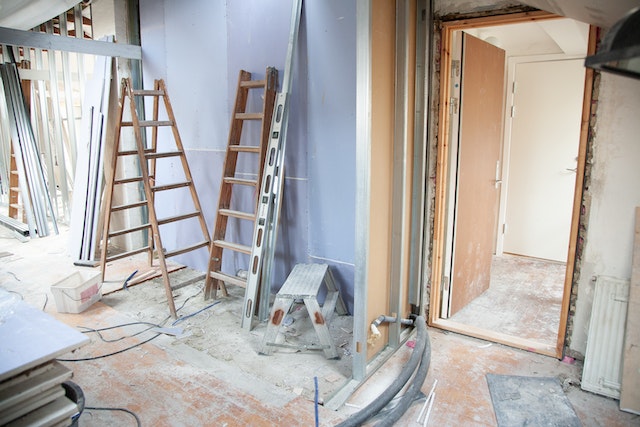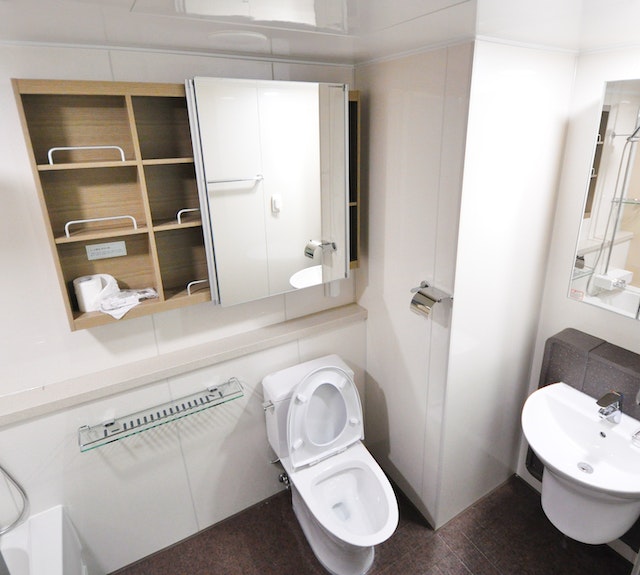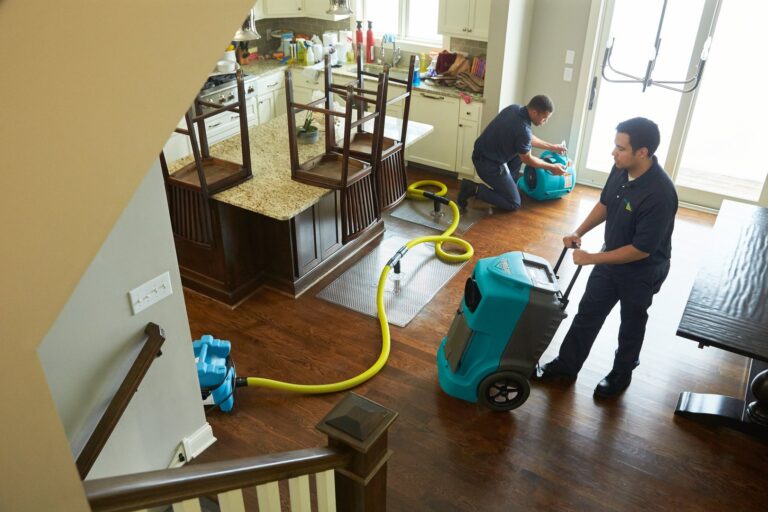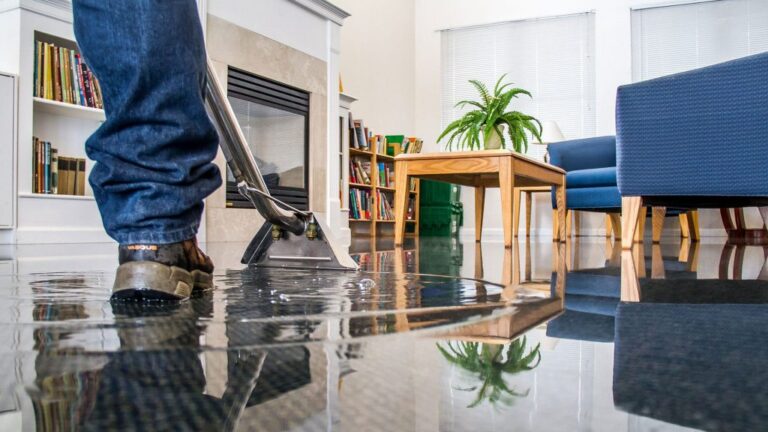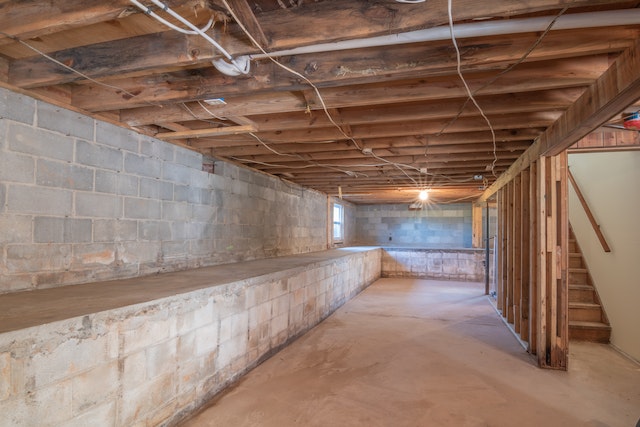A burst pipe in the wall can be difficult to identify until your home has already suffered extensive damage. Major flooding and expensive repairs often require the services of a professional remediation company.
Understanding the common causes of a burst pipe and what steps to take to minimize damage afterward can help you respond to this plumbing emergency. We’ll review a few essential steps to take after a pipe bursts in the wall.
What Causes a Burst Pipe in the Wall?
Many things can cause a pipe burst in the wall, including:
- Cold temperatures – Freezing temperatures are one of the most common causes of a burst pipe in the walls. During freezing weather, the cold water inside causes the pipes to contract and move, which could eventually burst.
- Blocked drains or systems- A clog in the plumbing system from rust or tree roots can lead to a pipe burst.
- High water flow- Excessive water flow may be too much for your home’s water system, which could eventually lead to leaks or the pipes bursting.
What Are the Signs of a Broken Pipe Inside a Wall?
It’s not always easy to spot a broken pipe inside a wall. Some of the most common signs of a broken pipe inside of a wall may include:
- Bubbling walls: When water from a burst pipe gets trapped, it leads to a bubbled wall.
- Fluctuating water pressure: You may notice rapidly fluctuating water levels from a broken pipe.
- High water bills: A pipe burst often leads to higher water bills.
- Unexplained puddles: Unexplained water flooding or puddles on the floor can indicate a burst pipe somewhere in the wall.
- Watermarks on the ceiling: You may notice brownish watermarks on the ceiling.
- Discolored, stinky water: The water in your home and toilet can become discolored and stinky after a pipe breaks.
- Mold growth: Mold begins growing from a leak in as little as 24 hours. Once it starts, it can rapidly spread throughout your home’s walls and ceilings.
How To Repair a Broken Pipe Inside Your Wall – 6 Steps To Take Now
Immediate action is essential when a pipe bursts in the wall. Waiting too long to take action could lead to more water damage, excess bacteria, and spore growth.
Turn Off Your Main Water Supply
Turn off the water supply so no more water can leak into your home and cause further damage. Keep the main water supply off until everything is repaired.
Turning off your main water supply is easy and can be done at the main water valve. This is usually located near the water heater or, sometimes, the water meter. We also recommend turning off the main power circuit, which helps prevent electric shock.
Be sure also to unplug all appliances in the room with water damage. Make sure everyone in the household knows where the main water valve is to manage an emergency quickly.
Contact a Remediation Company
Contacting a water damage restoration company should be one of the first things to do following a burst pipe in the wall. In addition to helping with cleanup, a local restoration company also assists with collecting documents for an insurance claim, collecting repair estimates, and ensuring your home is safe following flood water.
Another timely step to take is to work with your restoration company to file an insurance claim. You’ll need evidence that shows the cause, necessary repairs, and water remediation needs. The funds from your insurance can help cover the cleanup costs of a broken pipe.
Drain the Faucets and Taps
After turning off the water supply, turn on all the faucets in the home to remove excess air pressure and water. When you drain the faucets, you also remove extra air from the pipe, which can help prevent further problems. Drain the faucets in the kitchen, laundry room, and bathroom sink. Drain the toilet by flushing it after turning off the water supply.
Call a Plumber Immediately Following a Pipe Burst
Call a plumber or work with your restoration company to schedule repairs. While some homeowners may be able to make minor repairs, like a leak, a burst pipe is usually best left to a professional.
If you do plan on repairing it yourself, you’ll need to replace the pipe first. This may involve a temporary fix until a professional plumber can get there for more permanent repairs. Otherwise, you can replace the damaged pipe with a new piece.
Another reason to consider calling a professional plumber is to avoid a busted water heater. Whereas a burst pipe is usually a plumbing emergency, a burst water heater is almost always an emergency.
Repair the Water Leak Behind the Wall
Some homeowners may attempt to repair a leak themselves. Remember that while you may attempt to DIY a leak to save money, failing to fix the leak could cost you more. You’ll also need to collect all the necessary tools before attempting to repair leaks.
You’ll need to cut into the wall to repair the broken pipe. Make sure you don’t cut into parts of the wall with electrical wires. You can always temporarily repair the pipe until a plumber arrives to repair the resulting leak permanently. Repair sleeves are an excellent way to fix a broken pipe temporarily. Other temporary ways to fix the resulting leak are to use rubber, wood, and a clamp.
Contacting a professional may be even more important if your plumbing is frozen. Avoid adding hot water to the broken pipe, as this can result in further water damage.
Remove Water and Clean the Mess
A burst pipe can create a big mess. Try to dry up any excess water and remove large items from the room in preparation for the water remediation company. You can also place a few fans to improve airflow, which can help dry up the water in the house faster.
If it’s not too cold outside, consider leaving the doors and windows open to help with drying. A busted pipe in the walls also usually means you’ll have to remove a lot of the drywall to keep you and your family safe.
How To Prevent Future Water Damage from a Burst Pipe
Prevention is the best way to avoid expensive water damage from a burst pipe. Since plumbing in the walls most commonly bursts when temperature dips, ensure your plumbing is properly insulated. Allowing your faucets to drip when temperatures drop below 20 degrees Fahrenheit can also help prevent plumbing leaks.
The Dangers of Mold Growth From a Burst Pipe
One of the biggest dangers of water damage from a burst pipe is the potential growth of mold. Spores quickly spread throughout the walls and ceiling, eventually impacting the health and safety of your household. If you notice any signs of mold growth, you’ll want to contact a mold remediation company.
Bursted Water Pipe in Your Tennessee Home? Why You May Need a Professional Remediation Company
Water damage can be hazardous. Standing water can lead to dangerous mold growth and affect your home’s structural integrity. A plumbing emergency is never convenient. After experiencing a burst pipe in your walls, your best option is to call in a professional. Nashville Water Damage Restoration helps you quickly restore your home or business following a busted pipe in the wall.

